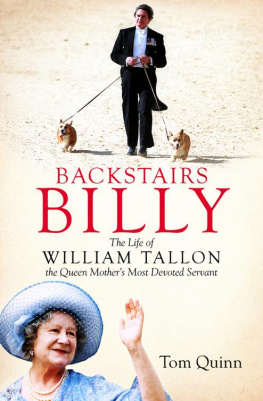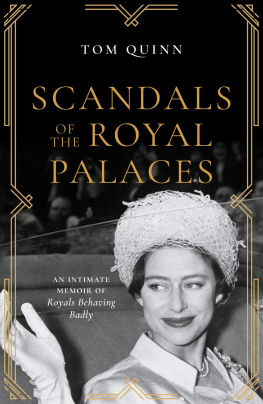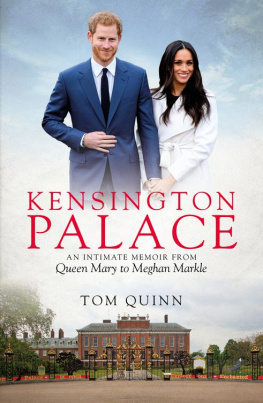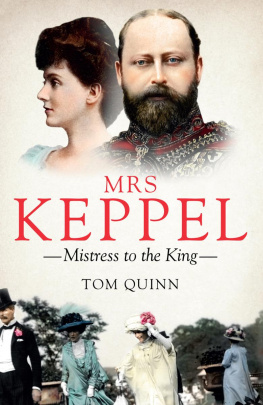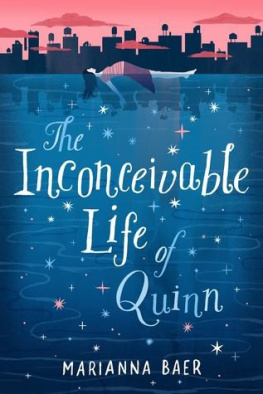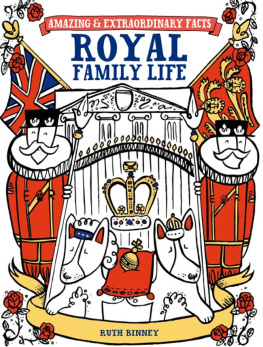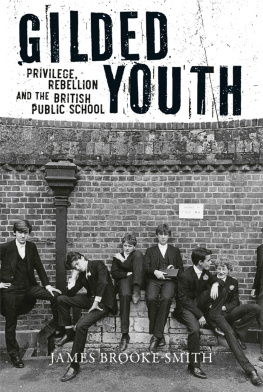Tom Quinn - Gilded Youth: An Intimate History of Growing Up in the Royal Family
Here you can read online Tom Quinn - Gilded Youth: An Intimate History of Growing Up in the Royal Family full text of the book (entire story) in english for free. Download pdf and epub, get meaning, cover and reviews about this ebook. year: 2023, publisher: Biteback Publishing, genre: Non-fiction. Description of the work, (preface) as well as reviews are available. Best literature library LitArk.com created for fans of good reading and offers a wide selection of genres:
Romance novel
Science fiction
Adventure
Detective
Science
History
Home and family
Prose
Art
Politics
Computer
Non-fiction
Religion
Business
Children
Humor
Choose a favorite category and find really read worthwhile books. Enjoy immersion in the world of imagination, feel the emotions of the characters or learn something new for yourself, make an fascinating discovery.
- Book:Gilded Youth: An Intimate History of Growing Up in the Royal Family
- Author:
- Publisher:Biteback Publishing
- Genre:
- Year:2023
- Rating:3 / 5
- Favourites:Add to favourites
- Your mark:
- 60
- 1
- 2
- 3
- 4
- 5
Gilded Youth: An Intimate History of Growing Up in the Royal Family: summary, description and annotation
We offer to read an annotation, description, summary or preface (depends on what the author of the book "Gilded Youth: An Intimate History of Growing Up in the Royal Family" wrote himself). If you haven't found the necessary information about the book — write in the comments, we will try to find it.
Gilded Youth: An Intimate History of Growing Up in the Royal Family — read online for free the complete book (whole text) full work
Below is the text of the book, divided by pages. System saving the place of the last page read, allows you to conveniently read the book "Gilded Youth: An Intimate History of Growing Up in the Royal Family" online for free, without having to search again every time where you left off. Put a bookmark, and you can go to the page where you finished reading at any time.
Font size:
Interval:
Bookmark:
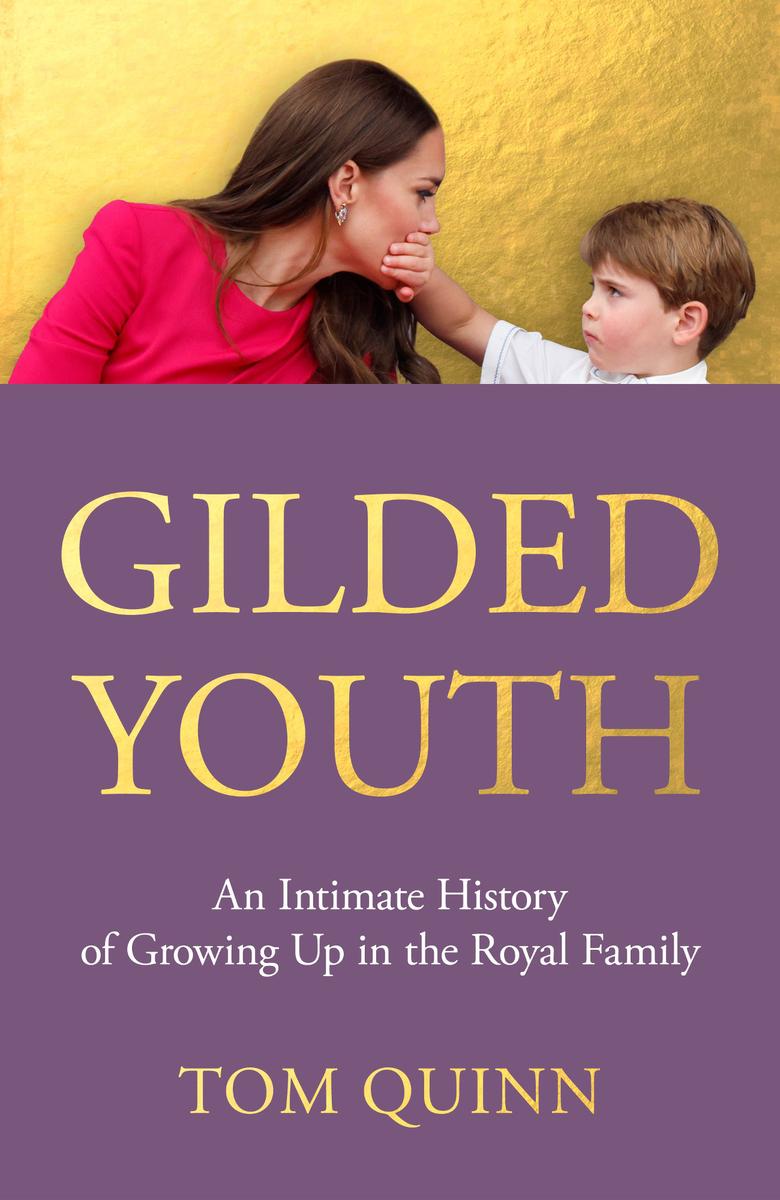
Insanity is hereditary. You get it from your children.
Sam Levenson
T his book is not simply a survey of royal children down the ages. That has been done a number of times. Instead, I have looked at the patterns of childrearing in the British royal family and have discovered how they are remarkably unchanging throughout history. While most of us are fairly conservative in how we treat our children one generation passing on the things they learned from their parents to the next generation compared to the royal family we are far more open to new views and new ways of bringing up our children. As parents, we change in the light of new evidence and the discovery that what previous generations have done may be far from ideal; we accept that some childrearing practices may actually be very damaging and are therefore best discontinued.
The royal family, it seems to me, is not like this. They do change but very slowly, and in some important respects they dont change at all. Which means we have a family in our midst a family whose viii very function has at times been to provide an exemplar for the rest of us that in terms of childrearing has hardly changed in centuries. The result is that generation after generation of royal children have been forced to endure what might very reasonably be described as dysfunctional parenting; parenting that is obsessed with clinging to long outmoded traditions that centre on emotional coldness and detachment, toughness and duty. The result is that dysfunctional childhood experiences produce royal adults especially male adults who go on to damage their own children. So this book is, if you like, almost as much about royal parents as it is about royal children.
There is more interest today than ever before in the early lives of members of the British royal family. After all, one might ask, what sort of childhood and education could produce a character such as Prince Andrew? And how could an upbringing of immense privilege have also produced the nervous, over-sensitive Prince Charles, now Charles III, or the rebellious Harry or the alcoholic party girl Princess Margaret?
One anecdote, variously told about the Earl of Leicester, Edward VII and even George V, epitomises the lives of royal children and their parents. The king, wandering through his palace one day, comes across a maid pushing a baby in a pram. What on earth is that baby doing here? asks the king. Whose baby is it?
The maid replies, Its your baby, sir.
Of course, the remarkable thing about royal childhood is that, despite its often damaging effects, it is also capable of producing the late Queen Elizabeth II, a woman with an almost inhuman devotion to duty. ix
There have been previous books about royal childhood, but they have almost always been straightforward historical accounts of a succession of royal childhood lives, or they are based on information given by senior royal officials to authors who could be trusted to paint a highly sympathetic picture. Authors of these books feel privileged that senior advisers and members of the family have given them a few quotes. Very few authors, it seems to me, have talked to the people who really know what goes on by that I mean the servants, the below-stairs staff. As a journalist writing in the satirical magazine Private Eye noted, Any royal hack knows that [talking to] lower grade staff is the best way to get the real gossip. The same writer goes on to say that books about the royals would be better if their authors spent more time below stairs.
Much of this book is based on time spent below stairs. Since the 1980s I have interviewed many below-stairs royal staff, from maids to drivers, secretarial and kitchen staff, gardeners, gamekeepers and gillies. Ive also spoken to friends of nannies and former nannies as well as, in a few cases, the nannies and nurses themselves. Ive also talked to a number of senior staff over the years, and many of these are aristocrats whose jobs came to them through connections with the royal family going back generations. The aristocratic flunkeys respond to questions with extravagant praise for the royals and irritated looks when the question of bad behaviour is hinted at perhaps this is perfectly understandable. If your family has been closely linked to the royal family for a century and more, you dont want a careless word to damage your childrens chances of becoming, in turn, ladies-in-waiting or equerries. x
But staff lower down the pecking order dont have these grand aspirations, and in the 1980s and 1990s when I began interviewing them, they were more than happy to talk. This of course was in the days before contracts were introduced that made it unlawful for staff to speak to anyone outside royal circles about their work. A number of staff were also able to talk about their parents work for the royals, even in some cases their grandparents, and so their memories go back to the 1930s and beyond.
The world they describe is very different from the world described in most books about the royal familys children. Far more in touch with the day-to-day royal world than more aristocratic staff, they were able to give me a nuanced and credible account of how royal children have been treated over the past seventy years and more; an account that is sometimes shocking and extraordinary but also deeply sympathetic.
This book seeks to weave these memories with more guarded accounts from those who have worked for or looked after more recent royal arrivals I mean the children of William and Kate and Meghan and Harry. I say guarded because recent employment contracts for those working for the royals include even more dire legal threats against anyone who breaks the code of silence. But through intermediaries I have found that a friendly approach and a promise of anonymity has produced some wonderful stories of what really happens inside the daily lives of the more recent generations of royal children.
I have woven personal accounts and memories and first-hand testimony with quotations from published accounts of royal children, such as, for example, Marion Crawfords famous book The Little xi Princesses about Princess Elizabeth and Princess Margaret, whom she looked after devotedly as a nanny when they were children.
Crawfords book has always been referred to as a sweet, uncritical, deeply flattering portrait of the two princesses that says nothing untoward, but look a little closer and you see that Crawfie, as she was known to the children, was very astute in her ability to seem to say innocuous things while actually painting a critical portrait of her charges and the family for which she worked. The reaction to the book among the royals showed a side of the Firm that Crawford would never have mentioned directly: the royal capacity to behave with absolute vindictive ruthlessness was revealed when, following publication of her book, Crawfie was never again spoken to by any member of the royal family; she was never allowed to visit the children who had once adored her. Even the young Princess Elizabeths pleas to let Crawfie return were ignored. The royal family had been able to read between the lines as few others have done, and they did not like what they read. Elizabeth came across on this reading as almost suffering from obsessive compulsive disorder, while Margaret was a buffoon who expected everyone to laugh at her endless jibes and her often cruel practical jokes.
The Queen Mother had given Crawford permission to anonymously advise on articles written about the children, but a memoir under her own name had been definitively rejected. Following the publication of the book, the royal family, which never forgives or forgets a perceived slight (rather in the manner of the Italian mafia), cast their former nanny into outer darkness. Elizabeth and Margaret were never again allowed to mention their once adored nanny other than to say when someone had been disloyal that they xii had done a Crawfie. Poor Crawfie lived on for decades after her disgrace, even attempting suicide. The royal reaction to her book proved its subtle message was true the royal children, the royal parents, were not all sweetness and light as Crawfie had seemed to suggest. The familys reaction to the book proved they were ruthless, even stony hearted, where there was a perceived betrayal of confidence. Crawfie would never have accused them of that.
Font size:
Interval:
Bookmark:
Similar books «Gilded Youth: An Intimate History of Growing Up in the Royal Family»
Look at similar books to Gilded Youth: An Intimate History of Growing Up in the Royal Family. We have selected literature similar in name and meaning in the hope of providing readers with more options to find new, interesting, not yet read works.
Discussion, reviews of the book Gilded Youth: An Intimate History of Growing Up in the Royal Family and just readers' own opinions. Leave your comments, write what you think about the work, its meaning or the main characters. Specify what exactly you liked and what you didn't like, and why you think so.


